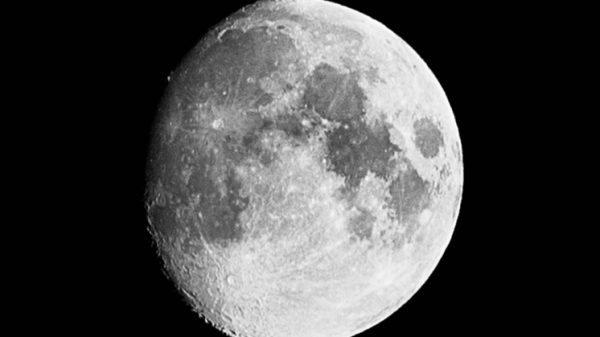
The new national security law is a game-changer for the city’s common law system
This article is the first in our three-part series, The Future of Hong Kong, looking at how much has changed since the first protests against Beijing’s extradition bill two years ago.
Martin Lee, a respected Hong Kong barrister, had just finished his Saturday morning walk around Hong Kong’s Victoria Park when seven police officers arrived at his door to arrest him.
The detention of Mr Lee, known by many as the “father of democracy” in Hong Kong and who helped to write its mini-constitution, was seen as a clear signal of the erosion of the city’s rule of law.
Mr Lee, 83, along with another distinguished barrister, Margaret Ng, 73, and outspoken newspaper publisher Jimmy Lai, 72, are among nine veteran pro-democracy figures facing a landmark trial on charges of involvement in an unauthorised assembly during the tumultuous 2019 protests. They have pleaded not guilty.
The prosecution of a man described as “the personification of the rule of law” indicated that Beijing will stop at nothing to snuff out what remains of the autonomy that was guaranteed under the “one country, two systems” framework when the UK handed the city back to China in 1997.
To do so unimpeded, it will have to bypass a fiercely independent judiciary and legal system – the last bastion of human rights protection against authoritarian rule.
Mr Lee summed up his predicament in the Washington Post shortly after he was first detained last April. “Our arrests are part of a larger plan,” he said.

Veteran pro-democracy figure and former lawmaker Martin Lee (C) speaks to journalists after being bailed from Central Police Station in Hong Kong, following his arrest alongside other pro-democracy activists
Credit: Jerome Favre/Shutterstock
Hong Kong’s legal profession, like other institutions and individuals who stand up for the city’s basic rights and freedoms, is finding itself increasingly coerced by China’s rulers to adapt to a communist concept of governance and justice.
The pro-democracy protests that began in March 2019 and roiled the city for a year were initially sparked by an extradition bill that would, if passed, have allowed Hong Kong residents to be tried in China, where there is no due process.
The draft bill was withdrawn but as mass rallies snowballed into more ambitious demands for universal suffrage, an alarmed Beijing imposed a new national security law, which was a turbo-charged version of the original.
The new suite of powers is a game-changer for the city’s common law system, which should be protected until 2047 under a legally binding Sino-British treaty.
It radically restructures the relationship between Beijing and Hong Kong, toppling the legal firewall that has existed between the city’s independent judiciary and the mainland’s party-controlled courts.
Its 66 articles introduce long jail terms for national security crimes vaguely defined as subversion, secession, terrorism and colluding with foreign forces, granting China jurisdiction and the right to take over a prosecution in sensitive cases.
It allows mainland security agents to operate openly in the city for the first time, undermines the right to a fair and open trial, and allows for defendants to be tried in Chinese courts. Free expression and peaceful protest against the authorities have effectively been outlawed.
The hazy law “amounts to an alarming legal and ideological takeover”, Schona Jolly QC, the chair of the Bar Human Rights Committee of England and Wales, wrote in Prospect magazine when it was imposed by fiat in July after being written by Beijing.
Hong Kong’s legal system is still grappling with its implications. Tom Kellogg, executive director of the Georgetown Centre for Asian Law, predicted the next three to four months would be “crucial” to preserving judicial independence.
“It’s clear that the Hong Kong judiciary is under extreme pressure right now and we’re going to see a series of potential deep conflicts in the months to come as some of these early national security law cases go to trial,” he said.
“We’ve already seen a high amount of pressure being put on the judiciary, both by politicians and senior government officials in Hong Kong and by Beijing itself.”
He said a troubling first sign of the new legal landscape was the high court’s denial of bail to Mr Lai in mid-February for additional national security charges of “colluding with foreign forces” after allegedly calling for sanctions against Hong Kong and China.
The presumption of bail for non-violent crimes was a hallmark of the city’s legal system before being overridden by a security law clause, putting the judiciary on a potential collision course with Beijing’s decrees as it tries to uphold Hong Kong’s Basic Law and Bill of Rights.
In Mr Lai’s case, judge Anthea Pang stuck by the letter of the new law, denying bail on the grounds that he risked committing further offences.
The difficulty of being granted bail under the law was underscored this week during a marathon four-day hearing for 47 pro-democracy activists suddenly charged with conspiracy to commit subversion for holding an unofficial primary poll last year.

Supporters of 47 pro-democracy activists hold flashlights as they wait for four of them to leave the West Kowloon Magistrates Courts on bail
Credit: Tyrone Siu/Reuters
Thirty-two were denied bail, although all 47 remain in custody after government prosecutors appealed the decision to grant it to 15.
In a blog post on Thursday, Professor Jerome Cohen, an expert on China at New York University’s School of Law, said the “chaotic judicial review” had made the “formerly revered judicial system look like the willing instrument of the police and prosecution”.
He described a ban on revealing the basis for the bail decisions as “shocking” and “dangerous”.
Hong Kong barrister Erik Shum said, in general, there has been no evidence so far of direct interference with the judiciary, but that the national security law presented a “serious handicap” to raising constitutional challenges and protecting human rights.
A particular future worry, added Mr Shum, was if Beijing demanded an oath of “patriotism” from judges and barristers, mirroring recent plans to force district councillors to swear loyalty to Beijing, squeezing out resistance to its tightening controls.
The precarious position of Hong Kong’s legal profession has left some torn about whether to relocate or stay and fight for the city’s rule of law.
Bar Association figures showed that 50 barristers ceased practising in Hong Kong last year, up from 45 in 2019 and 34 in 2018, reported the local Standard newspaper in February, citing an rise in younger professionals moving to the UK.
Hong Kong — Barristers
One young barrister, who spoke on condition of anonymity, said she wanted to stay but added: “I don’t know when it will get to the point where it is unbearable for me.”
Her law firm was at the forefront of political pressure, she explained. “I can expect that someone will be coming after us in some way or another. It’s just a matter of how and whether we can fend it off.”
In a sign of a creeping chill effect, some lawyers were already turning down politically sensitive cases, she said.
“The pressure is very much over all of our heads,” she added. “[The judiciary] have seen how Beijing has become less restrained in its exercise of power over Hong Kong. There is a very real threat that if the judges decide something is not to their liking, Beijing might step in to circumvent their decision.”
Helena Kennedy QC, director of the International Bar Association’s Human Rights Institute, said developments in Hong Kong were following a classic authoritarian playbook.
“One of the first things they do is they go after law, and the judges and independent lawyers, and they go after journalists and after an independent media and that trajectory is commonplace everywhere,” she said.
“We’re seeing an erosion of a serious kind and it’s a step-by-step undermining and no one should be deceiving themselves as to what is going on,” said Ms Kennedy, adding that the institute was particularly concerned over the prospect of extradition to the mainland.
The trial of the nine pro-democracy veterans is proving a test not only for the independence of Hong Kong’s judiciary but also acting as a yardstick for the future engagement of the UK’s legal profession, which has close ties with the city now being subsumed by China.
It has frequently turned to England’s deep pool of legal talent to ease its caseload, but the – now reversed – decision of David Perry QC to take up the prosecution brief in the high-profile trial sparked a tirade of criticism, including from the UK foreign secretary, who branded him “pretty mercenary”.

Mass rallies in July, 2020, on the 23rd anniversary of the city's handover from Britain to China
Credit: Anthony Wallace/AFP
Meanwhile, Paul Harris, the Cantonese-speaking British head of the city’s Bar Association, has raised China’s ire by defending the city’s legal system and criticising a proposal from pro-Beijing figures to force judges to consult a new council before handing down judgments.
The UK is already reviewing continued involvement of British judges in Hong Kong’s highest court, although many argue foreign judges can still play a constructive role.
For Ms Kennedy, the path for barristers’ future involvement is clear.
“When we suddenly see… the arrest of peaceful protesters and people who are resisting a denigration of their democracy, like Martin Lee, Margaret Ng, Jimmy Lai… you don’t take the role of the state to oppress them,” she said.
It was an entirely different scenario if barristers were invited to protect the rule of law by defending people. “It may be that lawyers in Hong Kong might be under pressure and therefore it is better for lawyers from outside to come and do it,” she said.
“There is a distinction… You’re not a hired gun, you have to bring to bear your own ethical and moral values and our own commitment as a nation to human rights and the rule of law.”
























































Свежие комментарии